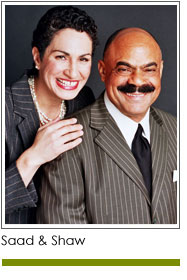 In our decades of work with nonprofits we have worked with boards of all sizes, from large institutions to small grassroots organizations. We have worked with board presidents, members of development committees, and everything in between. This experience has taught us some valuable lessons about the crucial role of the board.
In our decades of work with nonprofits we have worked with boards of all sizes, from large institutions to small grassroots organizations. We have worked with board presidents, members of development committees, and everything in between. This experience has taught us some valuable lessons about the crucial role of the board.
Here’s one key lesson: All organizations benefit from having an engaged board. When your board is engaged it sets a tone and direction that is inspiring to all members of the organization.
Engaged board members attend meetings and show up prepared and on time. They serve as advocates for the institution, sharing their knowledge of its vision, mission, activities, future directions, and impact. They understand the challenges facing the institution and are creative in helping find solutions and attract resources. They are team members who respect each other and are willing to check their egos at the door. The good of the institution is paramount.
As team members, they are willing to roll up their sleeves and help make things happen. They are accessible and willing to partner with the executive director and staff members, volunteers, donors, and funders to create solutions that help the organization deliver on its mission.
Engaged board members welcome transparency and accountability and understand the need for honesty and policies that guard against conflicts of interest. They commit — as a collective body — to raising a meaningful percentage of the organization’s budget. Each member makes a significant gift to the organization (in relation to income, assets, and connections).
Engaged committee chairs convene their committees and ensure goals and activities tie to the organization’s larger strategic direction. Those committees encourage participation by individuals from outside the board who can contribute expertise, skills, and resources. Committee reports are distributed prior to each board meeting so members can read them in advance.
Engaged board members are proactive in identifying opportunities and in alerting each other — and staff — to potential challenges. When they have questions, they ask them. If they feel the organization is not headed in the right direction, they encourage thoughtful discussion. When they learn of developments in the field that could impact the organization, they share the information. When an outside perspective could help, they suggest consultants, workshops, or a visit from the leader of a comparable organization.
When we hear an executive director say, “My board supports me 100 percent,” our ears perk up. We wonder, is that a good thing? A board that questions and encourages additional ways of looking at a situation can contribute to organizational health. When a board rubber-stamps the work of an executive director it may be a signal that board members are not engaged. Take a look at your board — what do you see?
Excerpted from the new book Strong Leaders, Better Results: Learn to Optimize Your Nonprofit Board by Mel and Pearl Shaw. A collection of FUNdraising Good Times columns. Available on Amazon.com.
Copyright 2020 – Mel and Pearl Shaw
Let us help you increase board engagement and grow your fundraising. Call us at (901) 522-8727. www.saadandshaw.com.










